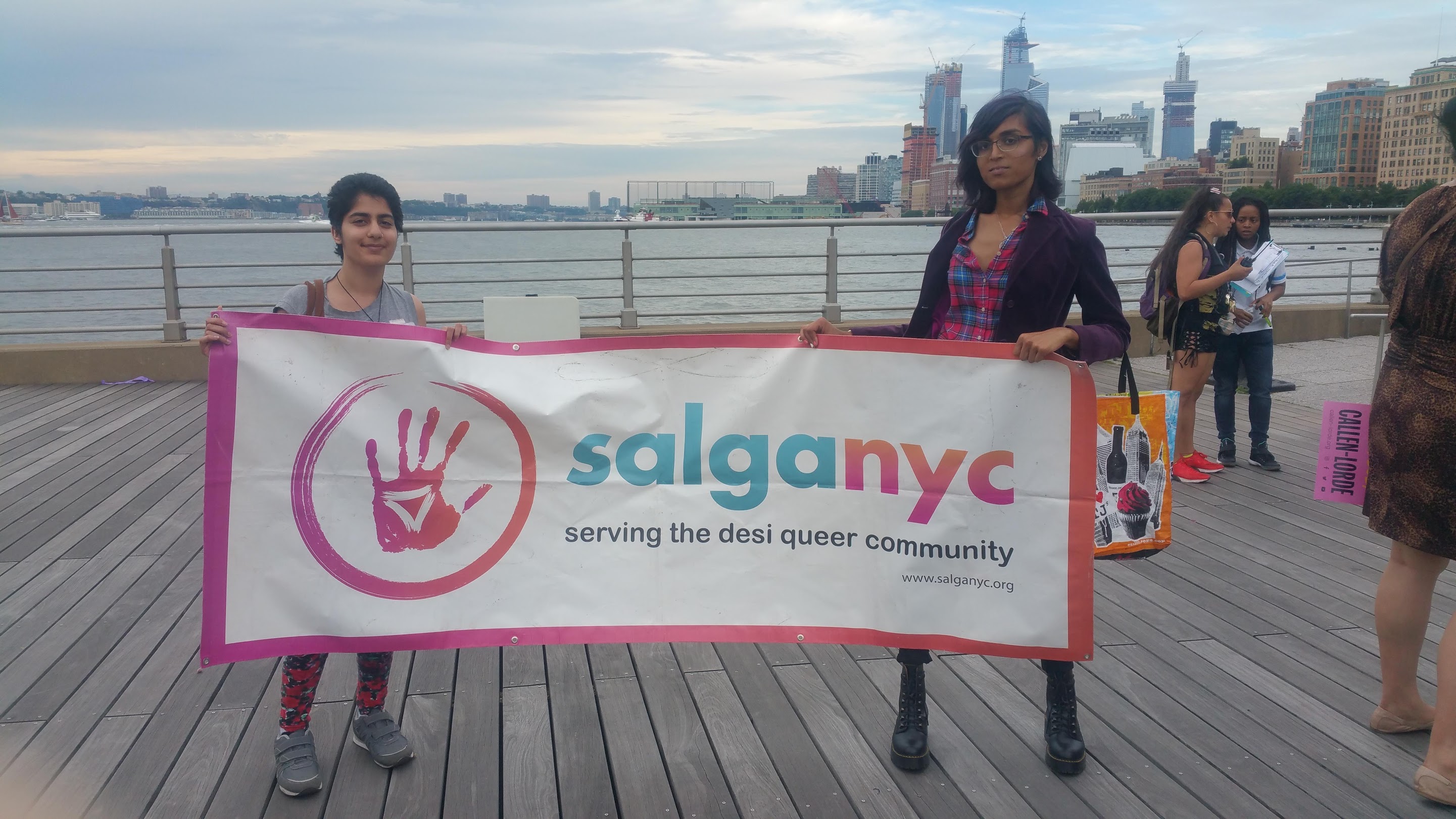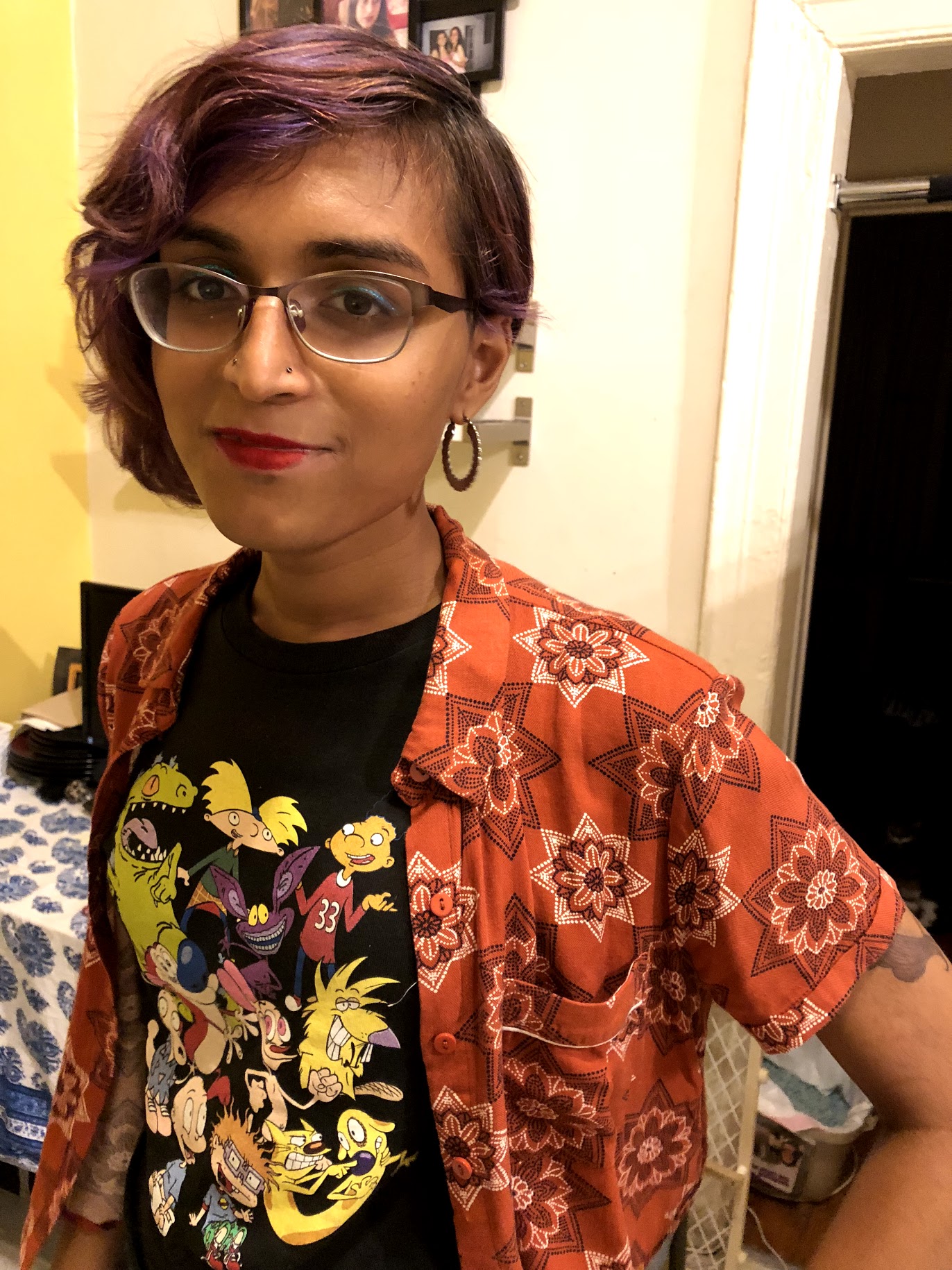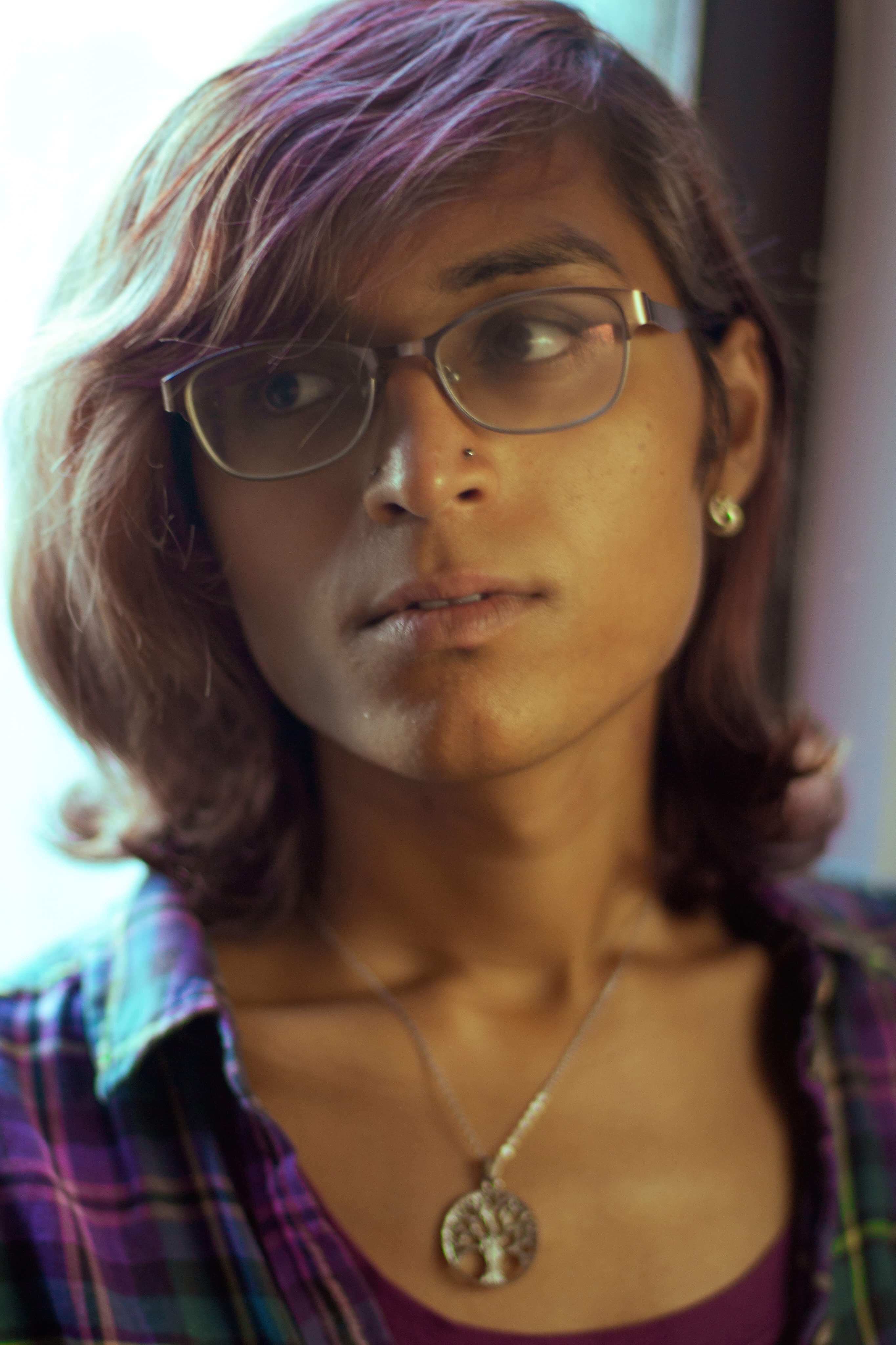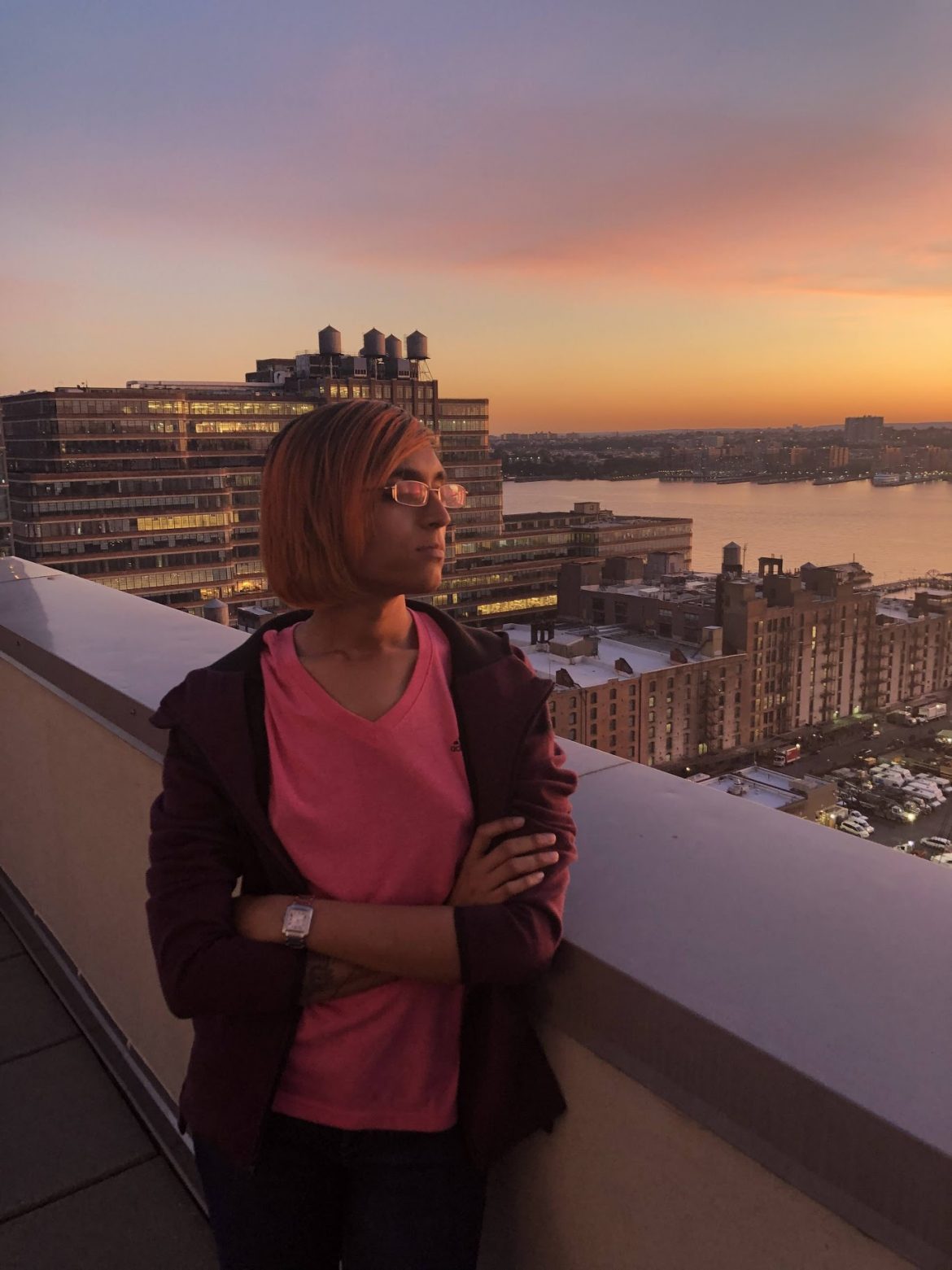Phoenix Rising
There was once a phoenix, burnt to ashes by the world. And then, the ashes turned into a beautiful soul soaring high into the sky, filling it with the life and colours that it so well missed. Let me walk you all through the story of how this phoenix called Sai came to be a soul with a want to return the favour to others.
When someone is cornered into a cave, there are many coping mechanisms. One is to become an insular person. Such was Sai. Insulation was a survival need to get through the life and family Sai was born into. Sai was born in 1996, within months of the mother’s arrival to USA. Sai’s elder sister was nineteen years older and already in college, so Sai was left alone to be the only and lonely child at home. Growing up to the unsavoury truth of most families in Guyanese culture – an abusive alcoholic father and a financially dependent mother – Sai’s experience was of one being stuck in a quagmire of emotionally unavailable parenting. Growing up in that dangerous environment compelled Sai to build walls around to protect oneself and to cope with it.
Having had a father who was a belligerent drunk and a mother who was loving but quick at anger, Sai could never trust either of the parents. The despise of the father and the fear of the negative critical feedback all the time, scared Sai a lot. That was the beginning of the anxiety issues – not knowing what’s in store in the upcoming moment.
An oft repeated sentiment of eyes being the window of the mindset is true for Sai. Revisiting the childhood photos, prior to being five years old, there was a sparkle, just like any other kid of that age, a sponge of happiness and hunger for delight. But once that child realised what life actually is, that sparkle quickly turned into depression, clearly evident in those sad eyes.
With the onset of puberty, an alarming discovery jutted its hood up. In hindsight it is now clear that it was cross-gender feelings; but at that time, in that child’s mind, they were nothing short of fears of the worst nightmare.
A lot to hide. A lot to hide.
Self-hatred set-in badly with anxiety becoming prominent. In order to avoid being interrogated by the surrounding society, Sai started portraying the best of self, lest there were any doubts. The only way to live through it all was to keep the world at bay. The fear of slipping up a piece of personal information kept that distance perpetual. There was a fear of a dire reaction from the father which kept Sai huddled in a cocoon of solitude.
Then the father died, before Sai came out to him.
That was the start of the ashes coming in together. To be put themselves out there. To be flamboyant. Today, it’s just a matter of time to reach a level of comfort, and Sai opens up and lets the vulnerability show. At last, finally, Sai is letting people in.
* * *
Why did you join SALGA NYC?
I joined SALGA because I was interested in getting involved with running the support group. I had gotten so much out of it in terms of meeting people who allowed me to explore my gender identity and really open me up from the closeted and insular person I had developed into up until that point in order to cope with being in this cruel society. I wanted to give back by doing the work of facilitating because it was so helpful to me and I wanted to return the favour to others. I was given the opportunity to do so because board members of SALGA had contacts with people who helped train me and others to do facilitations.

* * *
In the times when Sai was depressed, alone, unaware and sad; there was no one to hold the hand and to show the light. So, Sai wants to be the light for those who need, for those who want, for those who survive.
* * *
How have you benefitted from your SALGA NYC membership?
Being around so many other brown LGBT people was something I desperately needed. For the longest time I thought I was the only one of my kind- and Indo-Caribbean queer trans woman. One in seven billion. A unicorn. This is not as our individualistic culture might suggest a good thing. I felt that if no one like me had ever existed then how could I possibly be the first? This fed especially into my depression and self-loathing and reinforced one another. It would be a sad existence to be truly one of a kind. So, when I first walked into a SALGA support group in November 2016, which was packed with over 30 people because only a few days before Trump was elected, I felt something so powerful. I felt a little bit lighter. Everyone talked about Trump but when it was my turn to speak, I talked about my reason for coming, my “cross gender feelings”, and everyone was so sweet and supportive to me.
* * *
They say, in the absence of humanity, the divinity appears.
2016 was a big year for Sai. An onslaught of events at a fast pace paved a path forward. A visit to family in Toronto turned into an episode of expression of queerness. A liberating experience which showed the humanity of Sai’s cousins. And then, the divine intervention continued on for the rest of the year.
* * *
Who would you say have been your guide, how did you meet and develop relationships with them, and how have they helped you in the process?
There isn’t one guide. I have meet so many people and have been influenced by so many people. I remember the first time I ever tried to connect with trans people in person. It was September or August of 2016 and I was looking for groups in queens and I found one in Jackson Heights. It was the Queens Pride house. They have this big pride flag in their window and at this point I’ve never been into an explicit LGBT place. So, it was really aggravating my anxiety. I remember getting there about 15 mins early and being scared to enter. Standing on the street in front of the building, I felt very strongly that this is one of those clear crossroad moments in life. That what I decide to do, go in or walk away, would have a drastic change on my life. Go in and maybe become something new or walk away and continuing to be afraid and alone. So, while I’m vacillating on the street, I see this little old lady walk into the building. I think to myself if this little old lady can go in so calmly I can too. Turns out that little old lady was Pauline Park, she was running the trans event that I came for. That one little instance of good timing had a huge impact on my life. She was also a great person and I really enjoyed talking to her. Later on, I would meet the former leader of SALGA, Lakshman Kalasapudi. He was like a big brother to me and really made a lot of time to be there for me. He was someone I really respected and got me involved in a lot of events at SALGA and introduced me to a bunch of great people. There was also a man named Savith I met at my first SALGA support group. When I spoke about my cross-gender feelings, he offered to give me this green dress he owned, it was too big for me, but it was the start of a great friendship. We spent a lot of time together and had a lot of fun. These people really helped me open up initially and let me see that there was a community in NYC and that I could have a place in it. These people, along with others that are still in my life, gave me the opportunity for the first time in my life to be truly open, honest, and real. It was extremely therapeutic. Later on, I would meet people like Mohamed Amin in Caribbean Equality Project (CEP) and I’m currently working with him and so many other amazing LGBT Caribbean activists.
* * *
In December 2016, witnessing the death of the father because of a heart attack, with no one around; on a lonely cold night; with a dying body lying on the ground; not knowing how to use the phone to call 911 in that moment of stress; a renamed street unknown to the ambulance; an address of twenty years incapable of existence… right out of a movie plot… the end of the which was surreal for Sai.
It was time for a new beginning. A life Sai hadn’t expected.
Sai’s father died so that Sai could live!
At twenty years of age, Sai had an own place, to live an authentic self, to experiment queerness, to be independent, to experience the truth of life, to breathe a sigh of relief, to breathe.

It was 2016 that Sai cross-dressed for the first time in order to attend the twenty-fifth anniversary of SALGA NYC.
Today’s Sai is an androgynous tomboy. With a pre-COVID social life and post-COVID homebody, venturing out just to be with the partner.
* * *
What practical leadership advice do you have for others?
Always try to create as many relationships with people as possible. This work is all about mobilizing your relationships with folks to get work done. Talk to people, learn what their problems are, what they need, and how you can mutually assist one another.
* * *
Today, Sai is on the board of Caribbean Equality Project (CEP) which deals with Caribbean LGBTQ issues, much akin to SALGA NYC which works on the South Asian LGBTQ issues.
Sai organises support groups, in addition to a lot of other initiatives that include trans justice programming, talking about trans issues, and making sure there is a trans voice in the room. It now feels like a fulltime job with daily meetings during some weeks! But its worth it. As Sai is the one facilitating. It is the future.
Providing leadership is not probable without having had the chance to experience the need for the same. Let’s walk through the steps Sai had to walk recently and how it shaped the forthcoming life. Sai changed name, just a few weeks before this meeting. Sai is the chosen name, the official name, the legal name. But the process was not straightforward – documents, notary, money, attorneys, judges, courthouses, newspapers, … due to which Sai put it off for so many years. A chance meeting with someone who had done it provided a path for Sai. And now, armed with that information, Sai wants to be the path provider to someone else in the same shoes. Sharing it with the organisation that deals with these issues to make it more accessible and simpler.
In Sai’s view, the most optimum way to help a community is to be a part of the community, to understand what is the help the community needs; instead of a preconceived notion about what those needs are; without projecting one’s ideas as the needs of the community.
In general, helping others inherently means the existence of resources to do so. Most often, it is the cis-white organisations that believe what people need instead of understanding the actual need. We need to give the community the resources to tackle and solve their problems, as they are the most aware and understand their constituents the best.
Sai makes a beautiful point that community work is all about relationships; being and building.
As an individual we cannot get much done on our own. We need to mobilise the relationships because an individual has only so much time and energy and resources to dedicate; but as a whole, we are much more than ourselves. We shouldn’t do it on our own nor should we strive to be the lone warrior. We aren’t heroes. We aren’t saviours. We are part of the community. We were helped before. Its our time to help others. As Sai was helped before, Sai feels in an obligation to be of help to others. A responsibility with humility.
At the conclusion of the conversation, I asked Sai for a quote that defines, motivates or guides the path forward.
Returning the favour – power comes from the community; it is not self-made nor forged their way through dire circumstances. To return the favour.

Thus, the phoenix rises, from the ashes of the past, into the winds of the future, soaring high above the clouds to shine on the path of those it leads.
Mohammed Shaik Hussain Ali



